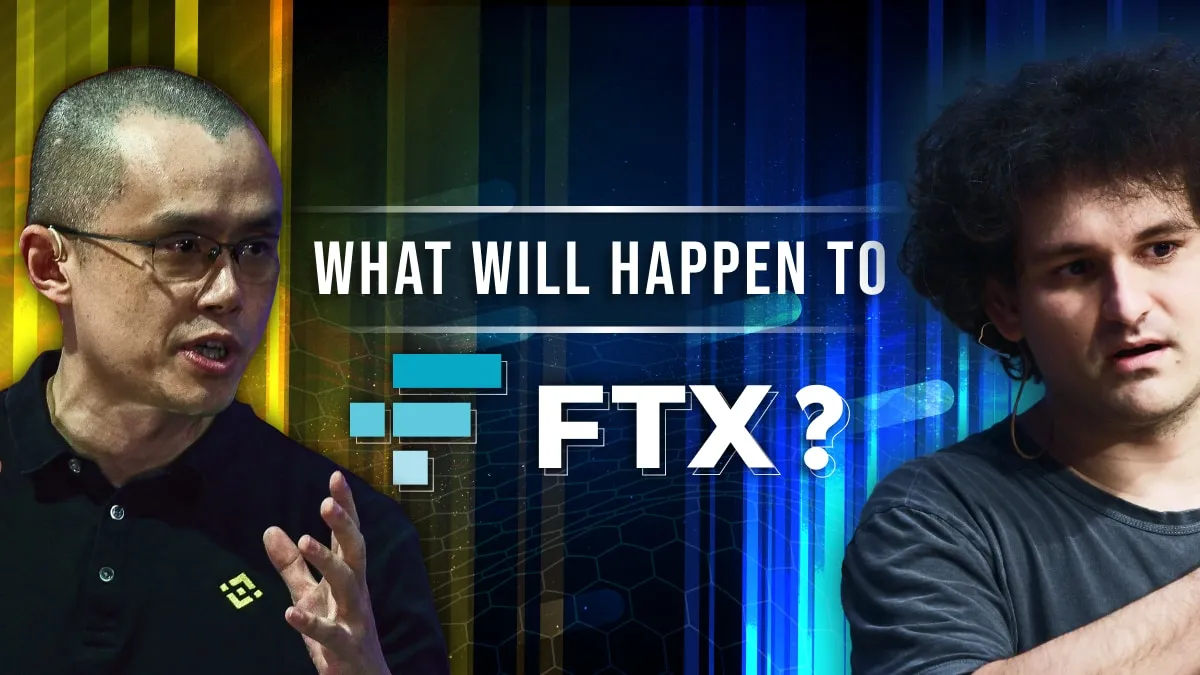On 8th November 2022, Binance CEO Changpeng Zhao (CZ) announced on Twitter that Binance intends to fully acquire FTX to help cover their liquidity crunch after FTX CEO Sam Bankman-Fried (SBF) reached out to Binance for help. In case you are out of the loop, our previous article “SBF vs CZ War” covers the core timeline of what has been happening that led to this acquisition.
In this article, we will break down the acquisition events as it unfolds and explain how this will affect every investor in the crypto space. You can also check out our latest video — FTX Collapsing: Biggest Disaster in Crypto? for more insight.
FTX Halts Withdrawals due to Liquidity Crunch
According to a report by Reuters, SBF sent an internal message on Tuesday morning to company employees stating that around $6 billion had been withdrawn out of FTX. Given the situation, FTX had no choice but to halt all crypto withdrawals due to lack of liquidity, which confirmed insolvency rumors about FTX.
Since the liquidity of FTX and Alameda Research are mostly held in illiquid FTT (FTX native token) instead of liquid cash, there was no way for FTX users to cash out their funds. Moreover, no strategic investors and partners of FTX were able to help cover their billions of dollars in debt. As a last resort, SBF turned to none other than CZ who has more than enough resources and manpower to rescue him.
Binance to Acquire FTX
Hours after the withdrawal suspension, CZ announced on Twitter that Binance signed a non-binding Letter of Intent (LOI), intending to fully acquire FTX and help cover the liquidity crunch to protect users. For the time being, Binance is conducting a full Demand Draft (DD) in which they are assessing the situation about the acquisition.
However, keep in mind that the LOI is non-binding, which means Binance has the discretion to pull out from the deal at any time. But if it goes through, FTX will be officially owned by Binance, possibly marking it the biggest moment in crypto history.
On the withdrawal end, Binance has helped FTX on clearing out withdrawal backlogs. According to a Tweet by SBF, this will clear out liquidity crunches and all assets will be covered 1:1. However, some users are still experiencing withdrawal delays as shown by the comments under the Tweet.
What will Happen to FTX Users after Binance Acquisition?
Although this may seem like a big move for Binance, the outcome created a ripple effect that could potentially affect every investor in the crypto space. Good or not, only time will tell.
Binance May Damage the Long-Term Interests of Crypto
As we have learned from FTX’s downfall as well as Terra Luna’s collapse, one thing is for certain in the crypto space: nothing is certain. No one saw it coming. The same could be said about Binance as well. (https://www.blazeair.com/) That is not to say that Binance is next, but the possibility is never zero.
After all, despite Binance being a highly reputable crypto exchange and CZ’s passion and commitment to building a truly decentralized ecosystem, it is a centralized business at the end of the day. With FTX out of the equation, Binance will be the undisputed powerhouse in the crypto industry, which goes against the idea of decentralization, the core pillar of crypto. If Binance falls, the crypto market goes back to the dark ages. Gracey Chen, Managing Director of Bitget, said on Twitter that Binance’s acquisition of FTX harms decentralization and could damage the long-term interests of the industry.
Nevertheless, CZ assures the public that the business model of Binance is aligned with decentralization and puts user security first. He asserted that Binance has never used BNB as collateral for loans and has never taken on debt. He also added that all crypto exchanges should incorporate merkle-tree proof-of-reserves, since fractional reserves only work for banks and not crypto exchanges. This reflects CZ’s proactiveness in building a more secure and decentralized ecosystem.
Increased Scrutiny and Regulations on Crypto Exchanges
Binance’s acquisition of FTX has definitely raised major concerns for government authorities. Several CEOs of other major crypto exchanges such as Jesse Powell (Kraken), Brian Armstrong (Coinbase), Jeremy Allaire (Circle), and Kris Marszalek (Crypto.com) expressed on Twitter that government authorities might step in next to enforce more heavy-handed regulations.
Although strict regulations could stabilize the market and protect user funds, it also limits digital freedom for retail investors as the whole point of crypto is trustless transactions without central authorities. It is basically a dilemma: too much involvement from the government defeats the purpose of the crypto space, too little breeds unregulated securities and malicious actors.

ronalthapa
Ron achieved $60,000+ (peak PnL) in airdrop rewards in 2024. He is an expert in testnet airdrop farming. If there is a points system, he knows exactly how to min-max it. Ron is also a data-driven trader, proficient in LTF price action. He hopes one day to be in the top 10 of the Bybit WSOT leaderboard.
